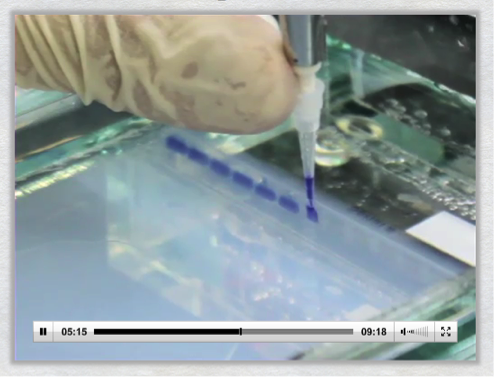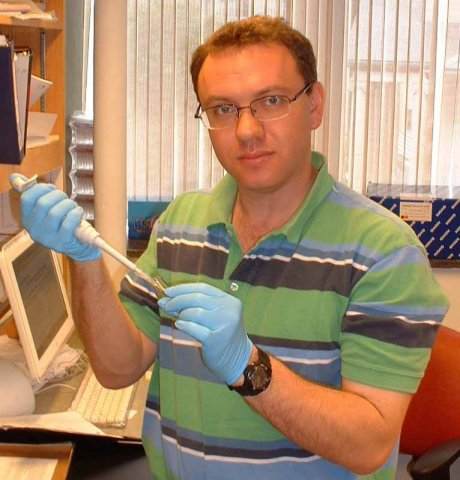This Wednesday, a handful of my colleagues and I visited Wellesley College (of Wellesley, Massachusetts), which is about a 30-minute drive from our office in Cambridge. Wellesley is especially beautiful in the fall, like a picturesque New England photo album, and we had been invited to visit the college campus by Deborah Lenares, the college librarian managing their acquisitions and resource sharing, to discuss implementation of JoVE in their classrooms.

While there, my colleague Dr. Val Buntrock gave a presentation on JoVE to a group of Wellesley professors. She talked about our mission, how the JoVE publication process works and how scientists and students use our videos in their work. Then a Wellesley faculty member, Dr. Don Elmore, spoke about his publication experience with JoVE.
He and his lab authored a JoVE video article on the transportations of peptides through membranes in liposomes. I felt little nostalgic watching his article. I was using peptides and liposomes a lot in my own research as a student at Weizmann Institute, and I had published in this area too.
Then there was the discussion and questions from the audience. We talked about the JoVE’s ability to increase the reproducibility of research and the specifics of publishing in JoVE since it is a video journal. But especially interesting for me was the discussion of our new product, Science Education, which is a database of online videos on basic lab experiments (think DNA gel).

Once the professors saw examples of these videos, they became visibly exited. I could see their faces lighten. They asked a lot of questions about the content, about usage and about subscription price. I realized that they could see how this product was going to be useful for their work. They spend a lot of time in the labs teaching basic procedures to undergrads, again and again. In general, teaching labs is more difficult than teaching theoretical courses, and doing it year after year must be very exhausting. Having such educational videos would save them a lot of time and effort.
Since its launch in 2006, JoVE has been mainly oriented toward publishing advanced research through video to increase the reproducibility of experiments. But as I witnessed in my visit to Wellesley, our video-based approach is useful for educational purposes too. And seeing this first-hand was a great pleasure.
Wellesley College has a special place in JoVE’s heart. They were the second institution to subscribe to JoVE when we began our subscription program in 2009 (the first was UC Davis), which shows their openness to innovation. It was rewarding to get to meet and talk with the people there. I am excited to see JoVE successfully implanted there, and I look forward to hearing more of such stories from other institutions.



